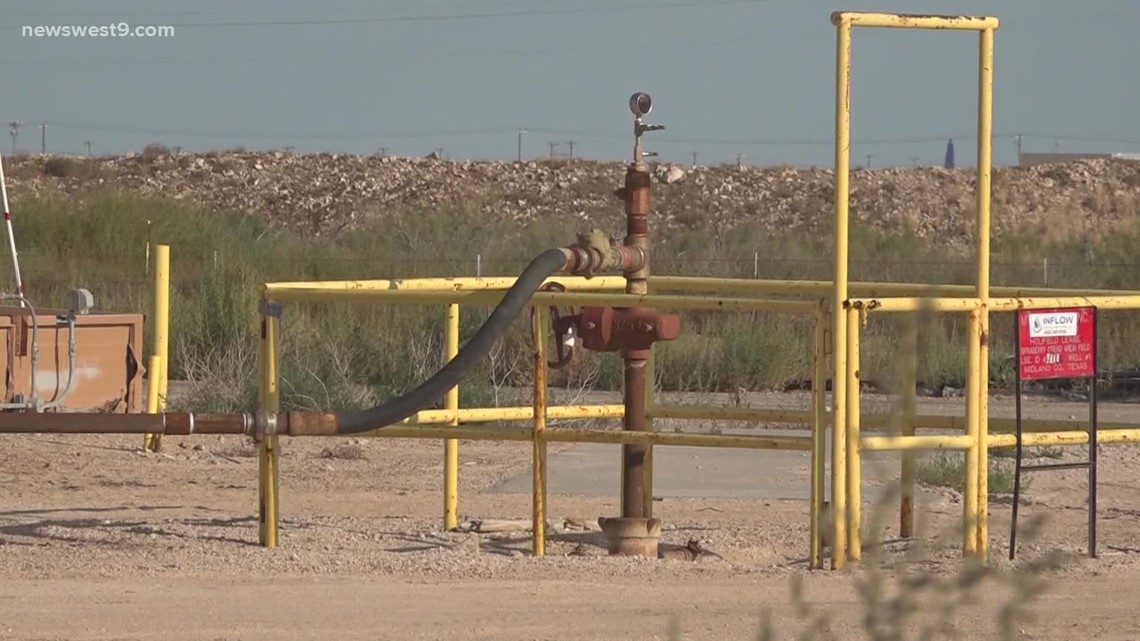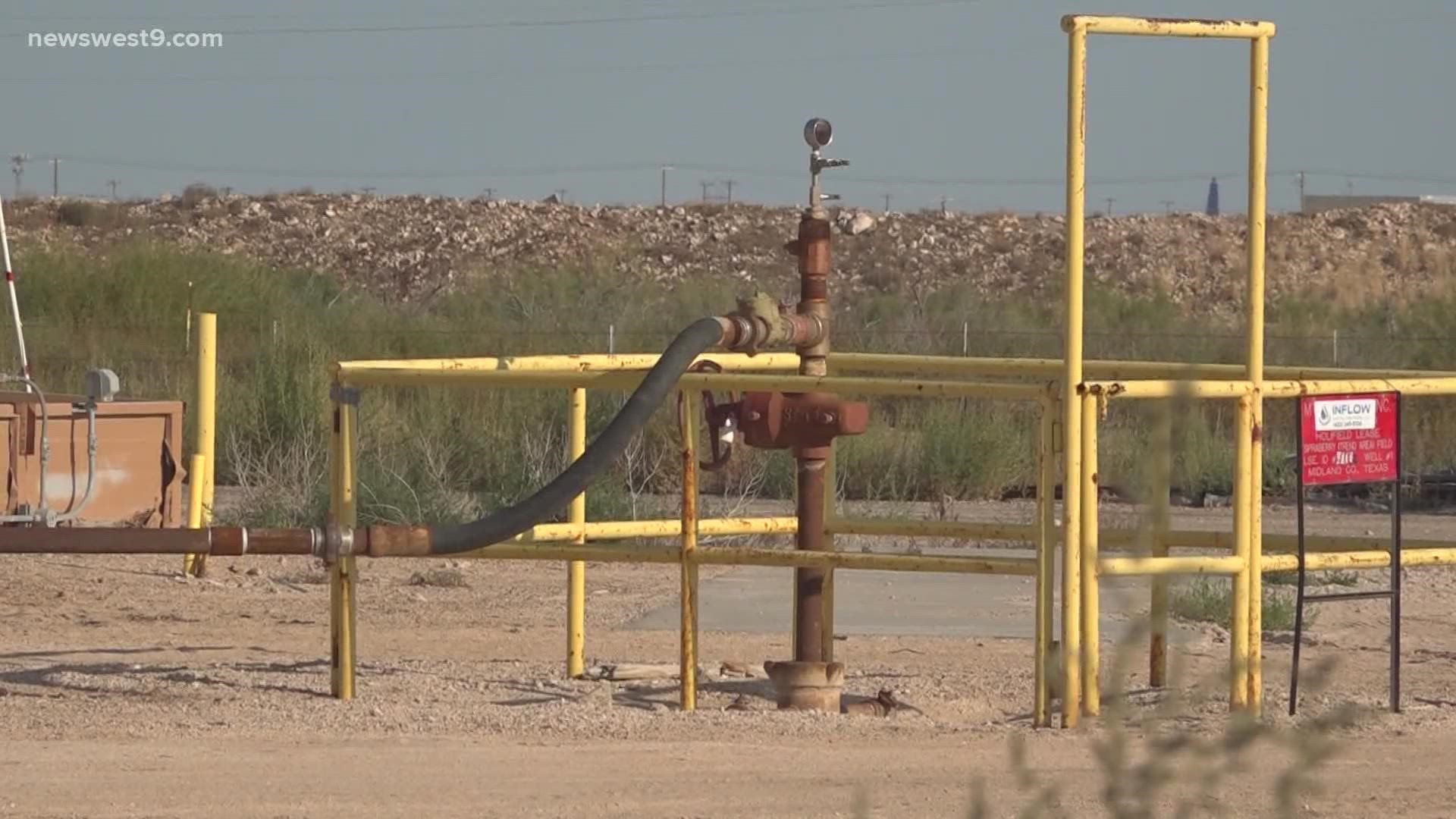MIDLAND, Texas — A series of earthquakes near Gardendale over the last several months has caught the attention of the Texas Railroad Commission. The RRC believes they are linked to the oil and gas industry.
This is why starting on December 31, the RRC plans to shut down deep saltwater disposal sites in an area known as the Gardendale Seismic Response area, an area that spans about 100 square miles of Midland and Ector Counties as well as a couple others.
The disposal wells that are shutting down are those that inject saltwater at depths of 10,000 feet below the surface of the Earth. There are about 32 of these types of wells in the Gardendale Seismic Response Area.
"I think the moves by the Railroad Commission have been very measured and are appropriate. The industry is working with them on this too because we’re all citizens of the Permian Basin, and we don’t want to feel the quakes here either," Kyle McGraw, outgoing chairman of the Permian Basin Petroleum Association said.
When drilling for oil, there's a lot of wastewater that comes with it that gets injected back into the ground. The RRC believes that this method, the deep injections, are aggravating old fault lines and causing the earthquakes.
"They were smart to not just shut down all the shallow injection because it’s very unlikely that it’s the cause. That the logic was that it’s a deep injection, let’s limit it first, and we’ll see what we can do to improve things," McGraw said.
McGraw warns that we likely won't see immediate results after the suspension. He believes that this will be a process that takes time and asks the residents in the Permian Basin to be patient with the study.
"I do want to remind everybody that in this case, this injection water goes in, and it doesn’t cause something next day. Some of this injection has been going on for 7-8 years and all of a sudden now we’re at levels that are causing slippage," McGraw said.


What does this mean for the people working the wells in the Gardendale Seismic Response Area? McGraw believes that these wells will still be operation but will move towards shallower injections.
"They also were thoughtful enough. They gave the operators the ability to re-complete, stop deep, and you can come up to the shallow if you need, and of course many of these operators are going to need that because they’re like 'what do I do with the water? If I don’t produce my water, then I’ve got to shut in my oil,'" McGraw said.

